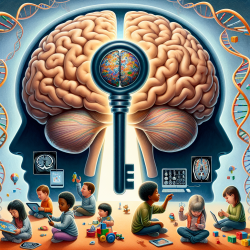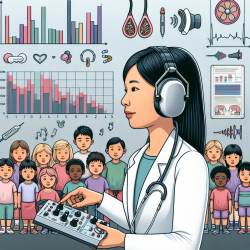Introduction
As practitioners in the field of speech-language pathology and online therapy services, understanding the intricate relationship between social networks and health can significantly enhance our approach to child health outcomes. The research article, "Analytic Advances in Social Networks and Health in the Twenty-First Century," provides valuable insights into how social networks influence health, which can be leveraged to improve therapeutic interventions for children.
The Role of Social Networks in Health
Social networks have become a pivotal aspect of health research, with increasing recognition of their impact on various health phenomena. The study highlights how interactions and relationships within social networks contribute to health outcomes, emphasizing the importance of understanding these dynamics in therapeutic settings.
Since the 1990s, the intersection of social networks and health has evolved, driven by innovations in theory, data collection, and methodology. This evolution has been particularly significant in addressing health crises such as the HIV/AIDS epidemic, which underscored the need for network-based approaches to health interventions.
Implications for Practitioners
For practitioners working with children, incorporating social network analysis into therapeutic practices can offer several benefits:
- Enhanced Understanding: By analyzing the social networks of children, practitioners can gain insights into the social dynamics that influence their health and development.
- Targeted Interventions: Identifying key influencers within a child's social network can help tailor interventions that leverage positive peer influences to promote healthy behaviors.
- Improved Outcomes: Understanding the role of social networks can lead to more effective strategies for addressing health challenges, such as social isolation or behavioral issues.
Encouraging Further Research
While the current research provides a foundation, there is a need for further exploration into how social networks specifically impact child health outcomes. Practitioners are encouraged to engage in research initiatives that examine:
- The impact of digital social networks on children's communication skills and social development.
- How social network interventions can be integrated into online therapy services to enhance engagement and effectiveness.
- The role of family and peer networks in supporting children with speech and language disorders.
Conclusion
Incorporating social network analysis into therapeutic practices for children holds great promise for improving health outcomes. By understanding and leveraging the dynamics of social networks, practitioners can develop more effective interventions that are data-driven and tailored to the unique needs of each child. As we continue to explore this field, collaboration and research will be key to unlocking the full potential of social networks in health.
To read the original research paper, please follow this link: Analytic Advances in Social Networks and Health in the Twenty-First Century.










